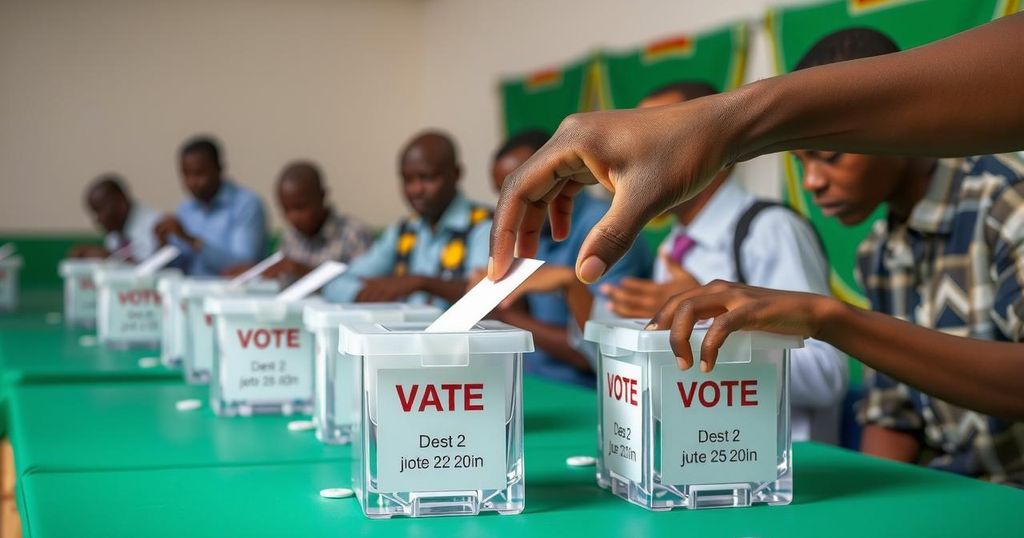Parliamentary Elections in Comoros Amid Political Turmoil and Allegations

Voters in Comoros are electing members to a 33-seat parliament amid allegations of previous electoral irregularities following President Azali Assoumani’s re-election. The political scene remains tense, with opposition parties divided on whether to participate, while Assoumani’s leadership faces increased scrutiny over potential authoritarianism and dynastic ambitions through his son. Results are expected by the end of the week.
Voters in the Comoros archipelago participated in parliamentary elections to fill 33 seats, marking a significant political event a year after the re-election of President Azali Assoumani. The President’s previous electoral victory faced allegations from opposition groups regarding extensive irregularities during the polling process, claims that officials from the ruling party have firmly denied. Approximately 338,000 registered voters cast their ballots at polling stations that opened early on Sunday, recalling a similar election last conducted in January 2020.
Nearly 100 candidates were approved by the Supreme Court to stand for election. Assoumani, who ascended to power through a coup in 1999, has experienced accusations from opponents of authoritarianism and speculation about grooming his son, Nour El-Fath, to succeed him post-2029. In a move that raised eyebrows, Assoumani granted his son extensive authority in government affairs as of 2024.
Several opposition parties, including Juwa, led by former President Ahmed Abdallah Sambi—who is currently serving a life sentence—advocated for an electoral boycott. However, other factions have opted to participate. Hamidou Karihila, a candidate representing the opposition Hope of the Comoros party, emphasized, “The Azali regime is weakened … by participating in these elections we are contributing to further exposing the flaws in its system and accelerating its inevitable fall.” Election results are anticipated to be announced by Friday.
The political landscape of Comoros is fraught with challenges, particularly surrounding issues of governance, electoral integrity, and the influence of President Azali Assoumani, who has maintained his grip on power since a coup in 1999. His regime has been accused of undemocratic practices, including allegations of manipulating elections. The current elections mark a crucial juncture as they could either reinforce Assoumani’s power or signal a shift in political dynamics depending on the electorate’s response amidst opposition calls for reforms.
In summary, the parliamentary elections in Comoros present a critical moment for the island nation, reflecting broader themes of governance, electoral fairness, and citizen engagement. As the elections unfold, the actions of both the ruling party and opposition movements will significantly impact the future political landscape. With results expected soon, the reactions from various political factions will undoubtedly shape the ongoing discourse on democracy in Comoros.
Original Source: www.lismorecitynews.com.au








